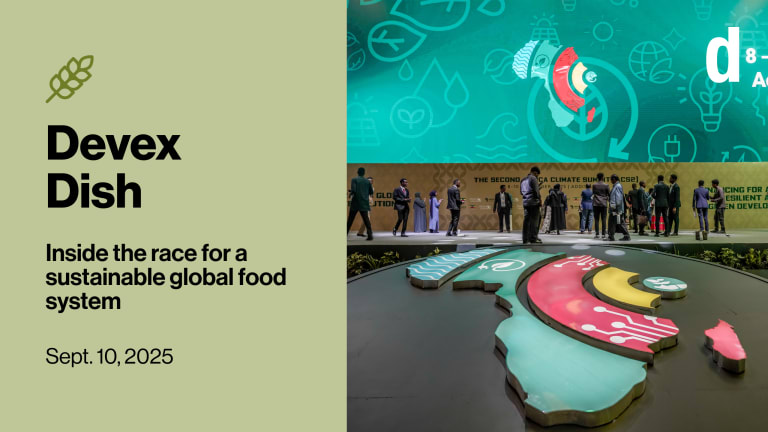
How can aid groups track data on food security in huge country with hardly any functioning infrastructure like the Democratic Republic of Congo?
The World Food Program has launched a pilot project in the DRC that collects data from mobile phone surveys to determine how many people don’t have enough to eat, where they are and why they are food insecure.
Jean-Martin Bauer, a food security analyst with WFP, told Devex that the Mobile Vulnerability Analysis and Mapping (mVAM) initiative will compile information from both voice calls and text messages — depending on the area — to conduct the surveys on a monthly basis “in order to generate trend data” and forget costly and time-consuming personal interviews in the field.
But even this will be a challenge in the DRC, which according to the World Bank has only 23 cellphone subscriptions per 100 people, one of the lowest rates in Africa.
“At present, cell phone coverage is too low to run representative surveys by phone in DRC. Our ambition under the mVAM pilot is more focused – we want to use voice calls for household food security monitoring, rather than to conduct large representative surveys,” explained Bauer.
In order to get more people to sign up, mVAM will provide those who do not already own a terminal with a free unit and load that will be automatically recharged for a certain amount after each completed call. Areas with limited access to cellphones will be prioritized in a country where 6.5 million people are food insecure, including 2.6 internal refugees, and stunting affects about 40 percent of under-nourished children.
Financed by DfID, CIDA-sponsored innovation fund
The 18-month pilot project has a $360,000 budget, of which $230,000 come from the Humanitarian Innovation Fund, which finances projects that use innovation and technology to improve the global response to natural disasters and humanitarian crises and is supported the U.K. Department for International Development and the Canadian International Development Agency.
Initially mVAM will be rolled out first in the DRC and later in Somalia, another fragile nation that suffers the same problems of food insecurity coupled with deficient or inexistent infrastructure.
“Our objective is to learn about voice technology and how to use it to conduct monitoring surveys in humanitarian contexts. If [the program is] successful, the World Food Program could rapidly roll out voice surveys in the the or so countries where we currently conduct periodic seasonal household surveys with our local partners,” said Bauer.
The technology, he added, could also be used for price data collection and even later on in the future as a cost-effective way to conduct project monitoring and evaluation in far-flung areas.
Asked about where else mVAM could be tested, Bauer mentioned the Sahel and the Greater Horn of Africa, where there are recurrent droughts and food insecurity, as well as countries “where insecurity restricts physical access to survey respondents.”
WFP has already reached out to USAID for more funding and is looking for public and private sector partners (like local and foreign mobile phone service providers) willing to join the project.
Read more development aid news online, and subscribe to The Development Newswire to receive top international development headlines from the world’s leading donors, news sources and opinion leaders — emailed to you FREE every business day.


